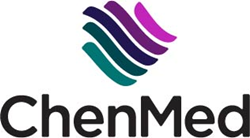
ChenMed logo
Primary care doctors can use preventive care to reduce coronavirus mortality rates for seniors with underlying health challenges by as much as 40 percent.
MIAMI (PRWEB)
October 06, 2020
ChenMed and University of Miami researchers today announced a new era in predicting hospitalization and severity of coronavirus infections among elderly Medicare patients. Their findings in the October American Journal of Preventive Cardiology also show high-touch primary care with early cardiovascular risk factor modification could explain 40 percent lower mortality among Medicare-eligible seniors due to COVID-19; plus, early stages of cardiovascular disease and socio-economic disadvantage increase the probability of poor outcomes after COVID-19 diagnosis.
Instead of the more than 30 percent mortality rate for such elderly populations with coronavirus infections reported by the United States and Europe during the pandemic, the investigators report just 18 percent mortality among the entire study group of 400 ethnically diverse, low-income, elderly patients in eight states with a mean age of 72 years. For the subset of 244 study patients hospitalized due to COVID-19, the mortality rate was 27 percent.
“We are so grateful to the American Journal of Preventive Cardiology for fast-tracking publication of our peer-reviewed paper,” says lead investigator Reyan Ghany, M.D., FACC, FASE, ChenMed Regional Market Chief Medical Officer and National Director of Cardiovascular Diseases. “For many months, coronavirus infection mortality rates among elderly patients in the United States and Europe have exceeded 30 percent. We’ve now shown how primary care doctors can use preventive care to reduce coronavirus mortality rates for seniors with underlying health challenges by as much as 40 percent. This is a big deal, especially because non-invasive echocardiograms also can help doctors predict hospitalization and severity of coronavirus infections among the most-at-risk populations.”
Co-investigator Leonardo Tamariz, M.D., MPH, Professor of Medicine, Division of Population Health and Computational Medicine, University of Miami, explains the study compared electronic health record data for 400 COVID-19 positive patients benefiting from five or more visits with their primary care doctor between January and May of this year. The data was evaluated against demographic, clinical and echocardiographic predictors and analyzed with primary outcomes being hospitalization and the diagnosis of acute respiratory distress syndrome (ARDS); and mortality as secondary outcome.
“The gold standard of frequent primary care doctor visits for at-risk elderly populations being fortified by screening echocardiograms and early cardiovascular risk interventions, is supported by our research,” notes Dr. Tamariz.
“It is great when doctors can use outcomes data to better educate patients – especially those with demographic, clinical and echocardiographic risk factors,” Dr. Tamariz adds. “More trust is earned and more lives can be saved as patients stay hyper vigilant about COVID-19 preventive measures.” Those measures include include staying socially distant, washing hands frequently, wearing a protective mask, and avoiding groups of 10 or more people.
Multiple prior studies have found that patients with severe COVID-19 infections who die have twice the prevalence of cardiovascular risk factors and coronary artery disease than those who do not. The new study conducted at Chen, Dedicated and JenCare Senior Medical Centers in Florida, Georgia, Illinois, Kentucky, Louisiana, Ohio, Pennsylvania, and Virginia, included four types of predictors: socio-economic; clinical; echocardiographic; and treatment to enhance learnings.
Age, gender, race, census based median household income and area deprivation index for place of residence enhanced the socio-economic profile of study participants and it is interesting to note the study group was 73 percent African American (9% Hispanic and 12% non-Hispanic White); 60 percent female; and had median household income of $28,249.
With regards to clinical care considerations, 100 percent of study participants benefit from personalized high-touch primary care made possible by the Medicare Advantage supplemental insurance held by 26.9 million U.S. beneficiaries. The study participants are living with multiple and major health challenges with 60 percent having hypertension; 50 percent having congestive heart failure; 49 percent having diabetes; 34 percent having chronic obstructive pulmonary disease; and 14 percent having coronary artery disease.
The echocardiographic predictors included diastolic dysfunction, ejection fraction and left ventricular hypertrophy, all easily measured with a non-invasive screening echocardiogram.
“What’s so important about our study” notes Daniel McCarter, MD, FAAFP, ChenMed National Director of Primary Care Advancement, is going beyond confirming earlier studies showing that age and underlying conditions predict coronavirus hospitalizations, acute respiratory distress syndrome, and all-cause mortality among older patients.
“We clearly link distinct demographic predictors, clinical predictors, plus left ventricular heart wall thickness measured by screening echocardiogram to both coronavirus hospitalizations, and to life-threatening acute respiratory distress syndrome caused by COVID-19,” explains Dr. McCarter. “Our findings should facilitate more effective preventive efforts.”
About ChenMed
For seniors most in need of care, high-quality health care often is beyond reach. ChenMed brings concierge-style medicine — and better health outcomes — to the neediest populations. ChenMed is a privately owned medical, management and technology company was, in September, named to the Fortune Magazine “2020 Change the World List” for measurable social impact, business results, innovation, and corporate integration.
A hyper growth company and provider of choice for some 20 Medicare Advantage health insurance plans, ChenMed brands include Chen Senior Medical Center, Dedicated Senior Medical Center, and JenCare Senior Medical Center.
Results of ChenMed’s high-touch approach to primary care are impressive, as illustrated in the Modern Healthcare cover story, which reports, “Indeed, ChenMed’s approach has resulted in 50 percent fewer hospital admissions compared with a standard primary-care practice, 28 percent lower per-member costs and significantly higher use of evidence-based medications.” Learn more about the high-growth company, where patients also average 75 percent fewer emergency room visits @ http://www.ChenMed.com.
About University of Miami
A private research university with more than 17,000 students, the University of Miami serves undergraduate and graduate students in more than 180 majors and programs; invests $324 million in research and sponsored programs annually. While the majority of this work is advanced by Miller School of Medicine faculty, University of Miami investigators conduct hundreds of studies in other areas, too, including marine science, engineering, education, and psychology.

